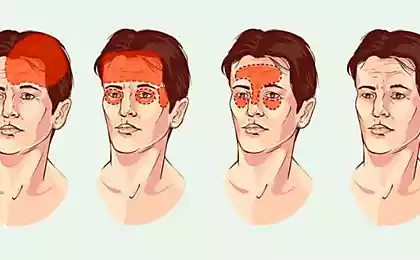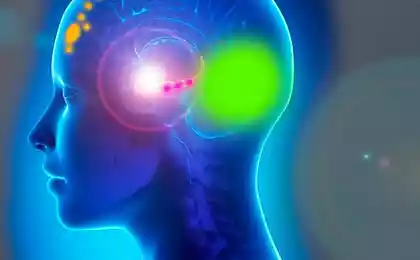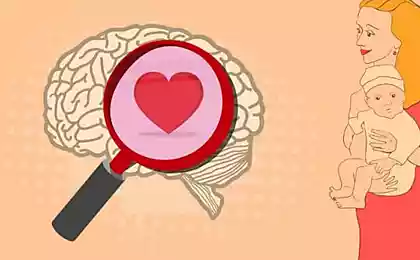236
Why developing self-awareness can cause pain

The path to self-knowledge is not always a comfortable walk through a flowering garden. Sometimes it is a painful journey through the thorns of one’s own illusions and defense mechanisms.
Maria, a successful marketer from Moscow, for many years considered herself a confident and independent person. When she first went to a therapist at 35, she was convinced that she would learn to cope better with stress at work. However, after a few months of therapy, Maria faced an unexpected discovery: many of her decisions are dictated not by her own desires, but by the desire to get the approval of others. That realization came as a real shock to her.
Mary's story is no exception. Developing self-awareness, while key to personal growth and psychological well-being, is often accompanied by discomfort, anxiety, and even temporary deterioration of emotional state. Why is this happening and how to deal with these difficulties?
The Nature of Self-Consciousness and Its Contradictions
Self-awareness is a person’s ability to be aware of their own thoughts, feelings, motives and behavior. According to research by Tashi Eirich, an organizational psychologist and author of Insight, only 10 to 15 percent of people are self-aware, although 95 percent consider themselves self-aware.
The development paradox: The more we learn about ourselves, the more we discover discrepancies between our ideal self-image and reality. This process inevitably causes cognitive dissonance – psychological discomfort from conflicting information.
Neurobiological studies show that the process of introspection activates the medial prefrontal cortex, the brain region responsible for self-reference. At the same time, activity in areas associated with processing negative emotions increases, which explains why deep self-knowledge can cause discomfort.
The main causes of discomfort in the development of self-awareness
Destruction of protective mechanisms

The human psyche creates protective mechanisms to maintain emotional balance. Denial, rationalization, projection—all of these strategies help us avoid painful truths about ourselves. As we begin to develop self-awareness, these defenses gradually weaken, leaving us face to face with unpleasant realities.
Alexander, a 42-year-old IT director, has always prided himself on his logic and rationality. Working with a coach, he found that many of his “logical” decisions were actually driven by fear of failure and a need for control. This discovery forced him to reconsider not only his professional approach, but also his relationships with loved ones.
Confrontation with repressed emotions
Many people avoid certain emotions throughout their lives — anger, sadness, shame, or fear. The development of self-awareness inevitably leads to the encounter with these repressed feelings. Research by Brenier Brown, a professor at the University of Houston, shows that people who avoid painful emotions also blunt the ability to experience joy and gratitude.
Awareness of your own responsibility
One of the most painful aspects of developing self-awareness is recognizing one’s role in creating life’s problems. Stop blaming circumstances, other people, or “bad luck” and accept responsibility for your choices takes courage and is often accompanied by feelings of guilt or regret.
Physical and psychological manifestations
The process of developing self-awareness can be accompanied by various symptoms:
- Increased anxiety - associated with uncertainty and the need to revise established ideas
- Temporary depression Reaction to the realization of missed opportunities or wrong choices
- Sleep disturbances The brain is actively processing new information about itself.
- Social exclusion The desire to step aside to reflect on new discoveries
- Physical tension Muscle clamps as a reaction to emotional stress
Strategies to overcome discomfort

Graduality and patience
Self-awareness does not develop in a day. Attempts to force the process can lead to emotional overstrain. Studies show that the most effective is the gradual, gradual development of self-awareness.
The 1% per day rule: Instead of making dramatic changes, focus on the small daily steps to self-discovery. Five minutes of meditation, journaling, or simply answering the question, “How am I feeling right now?” can be the beginning of a transformation.
Practice of self-compassion
Research by Christine Neff of the University of Texas suggests that self-compassion is a more effective motivator for personal growth than self-criticism. Treat yourself with the same kindness you would treat a good friend going through hardship.
Seeking support
Developing self-awareness doesn’t have to be a lonely journey. Psychotherapists, coaches, support groups, or even trusted friends can be valuable companions in the process. Studies show that people with social support are more likely to tolerate periods of personal growth.
Practical techniques
Observer technique: In moments of intense emotion, imagine yourself an outside observer. What thoughts and feelings do you notice? This technique helps to create a healthy distance between yourself and your experiences.
Thanksgiving for lessons: Each evening, write down three lessons you learned from the day, including painful discoveries. It helps to rethink negative experiences as opportunities for growth.
Mindfulness meditation: Regular meditation practice develops the ability to observe your thoughts and emotions without reacting immediately to them.
Long-term benefits
Despite temporary discomfort, developing self-awareness brings significant long-term benefits. A study from Harvard Business School found that people with high levels of self-awareness showed better career outcomes, more satisfying relationships, and higher levels of overall well-being.
Let's go back to Mary's story. After a year of working on herself, she admitted: The first months were really tough. I felt lost, like I didn’t know who I was. But gradually, I began to make more informed decisions based on my own values rather than the expectations of others. I feel more whole and authentic than ever before.
Conclusion
Developing self-awareness is not a path to permanent happiness, but a path to greater authenticity and awareness. The discomfort we experience in the process of self-discovery is not a sign that we are heading in the wrong direction, but a sign that real growth is happening.
The pain of growth is temporary, but the fruits of self-awareness stay with you for life. Every painful discovery is a step towards a fuller and more conscious life.
If you are in the process of developing self-awareness and experiencing discomfort, know: this is normal. Be patient with yourself, seek support, and remember that on the other side of the process, you will have a deeper understanding of yourself and a more conscious life.
Glossary
Self-awareness The ability of a person to be aware of and understand their own thoughts, emotions, motives, behavior and their impact on others.
Cognitive dissonance Psychological discomfort that occurs when confronted with conflicting information or a mismatch between beliefs and behavior.
Protection mechanisms Unconscious psychological strategies that help a person cope with anxiety and painful experiences.
Repression A defense mechanism in which painful or unacceptable thoughts and emotions are excluded from consciousness.
Self-compassion A friendly and understanding attitude towards yourself in times of failure, mistakes or personal difficulties.
Medial prefrontal cortex The area of the brain responsible for self-awareness, self-referential thinking, and understanding one’s own mental states.
Mindfulness The ability to be present in the present moment and observe your thoughts and emotions without judgment.
Authenticity Conformity of external behavior to internal values, beliefs and the true nature of the individual.
How to Train Your Brain to Want Healthy, Not Bad Food: The Taste and Neural Connection Revolution
B Vitamins: The High Dosage Revolution























